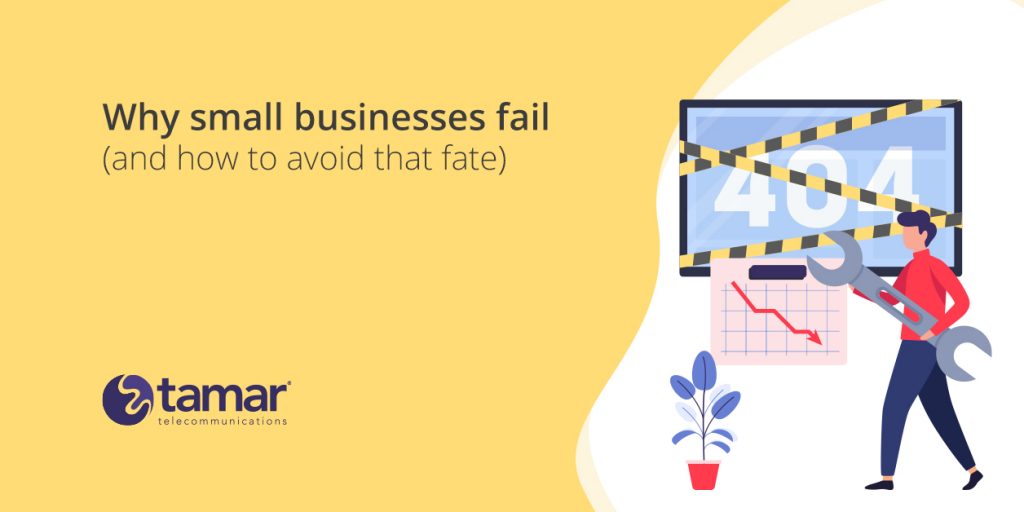
In brackets next to each reason, we’ve noted the percentage of failed businesses from CGInsight’s survey which reported that reason as a factor in their closure.
Reason 1: No market need (42%)
Over four-in-ten failed small businesses say an absence of market need was one of the factors in their failure. Consumers simply did not want to buy what they were selling.This highlights the great importance of doing thorough market research before launching a business. Ahead of launch, be sure to measure demand using market research methods such as surveys, focus groups, one-on-one interviews, observation and field trials.
Reason 2: Ran out of cash (29%)
Funds drying up can often be a symptom of more fundamental reasons why a business is struggling, such as a lack of market need or pricing issues. However, in some cases the situation is simply that a perfectly viable business fails because it lacks the funds to reach a stable profitable state.Securing funding for a new business can be tricky, but there are plenty of options out there for small businesses with a solid business plan to back up their financial projections. For detail on funding sources including startup loans and business loans, read our guide to small business funding.
Reason 3: Not the right team (23%)
Small businesses often have to cover a lot of skill types with a very limited number of staff. If the required skills are lacking, it may prove impossible to execute a business plan successfully.A good way for founders to ensure a broad mix of skills exists within their team is to hire ‘T-shaped’ people – a human resources term for people with one area of deep specialism, complemented by a few additional proficiencies.
Reason 4: Outcompeted (19%)
The best thing a business can do to ensure it does not get outcompeted by rival businesses is thoroughly assessing the market and identifying a space where it will be able to compete effectively.If you’re looking for an in-depth framework to assess the competition within your industry, try using Porter’s 5 Forces, which outlines the competitive factors which businesses need to pay attention to.
Reason 5: Pricing/cost issues (18%)
Pricing products and services is notoriously hard for small businesses to get right. The urgent need to build a customer base tempts many new businesses to underprice their offering, while on the other hand, overpricing tends to cause low sales or excessively high customer expectations. We would advise small businesses to benchmark their prices very carefully against other players in their industry.
Reason 6: User-unfriendly product (17%)
Sub-par products and services often turn out to be a factor in the downfall of a small business. The best way to guard against this possibility is with rigorous consumer testing before launch. Always do this with impartial testers, rather than friends or family.The quality of products and services tends to vary over time, along with the situation of a business. As such, regular quality audits should be carried out to ensure the required standards are kept up.
Reason 7: Product without a business model (17%)
You don’t just need a great product; you also need a great plan to sell it. This is an easy pitfall to dodge: just be sure to write a business plan that covers all the bases before you launch.
Reason 8: Poor marketing (14%)
Poor marketing can take lots of different forms, from failing to choose the right social media platforms to using the wrong type of telephone number for your business.The safest solution for ensuring effective marketing is investing in skilled people, or in high quality training for yourself. Some entrepreneurs have a natural talent for marketing, but this usually needs to be backed up by strong knowledge of strategic and tactical best practices.
Reason 9: Product mistimed (13%)
While there are certain things businesses can do to ensure a timely product launch, such as reviewing seasonal sales figures for similar products, sometimes an event beyond the business’s control will cause a reduction in demand.The best thing a business can do to guard against such cases is to build versatility into its model. For instance, a firewood seller operating during an abnormally warm year could plan to shift its marketing to promote its product as fuel for cooking, rather than heating.
Reason 10: Loss of focus (13%)
One of the most important things to know before you start a business is that succeeding as an entrepreneur takes focus and commitment. As soon as the founder loses their passion for the project, negative effects on productivity, the quality of ideas, and quality of service are likely to ensue. There are some practical steps a small business can take to ensure its team maintains focus. Regular goal-setting is key, as this helps ensure everyone understands what they are working towards, how they’re going to get there, and how to measure their progress towards their objectives. Another useful tactic is to create a mission statement for the business. Microsoft’s founding mission statement, “A computer on every desk and in every home”, is a good example of a mission statement that kept team members focused and turned out to be effective.







